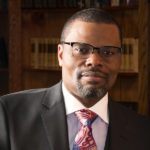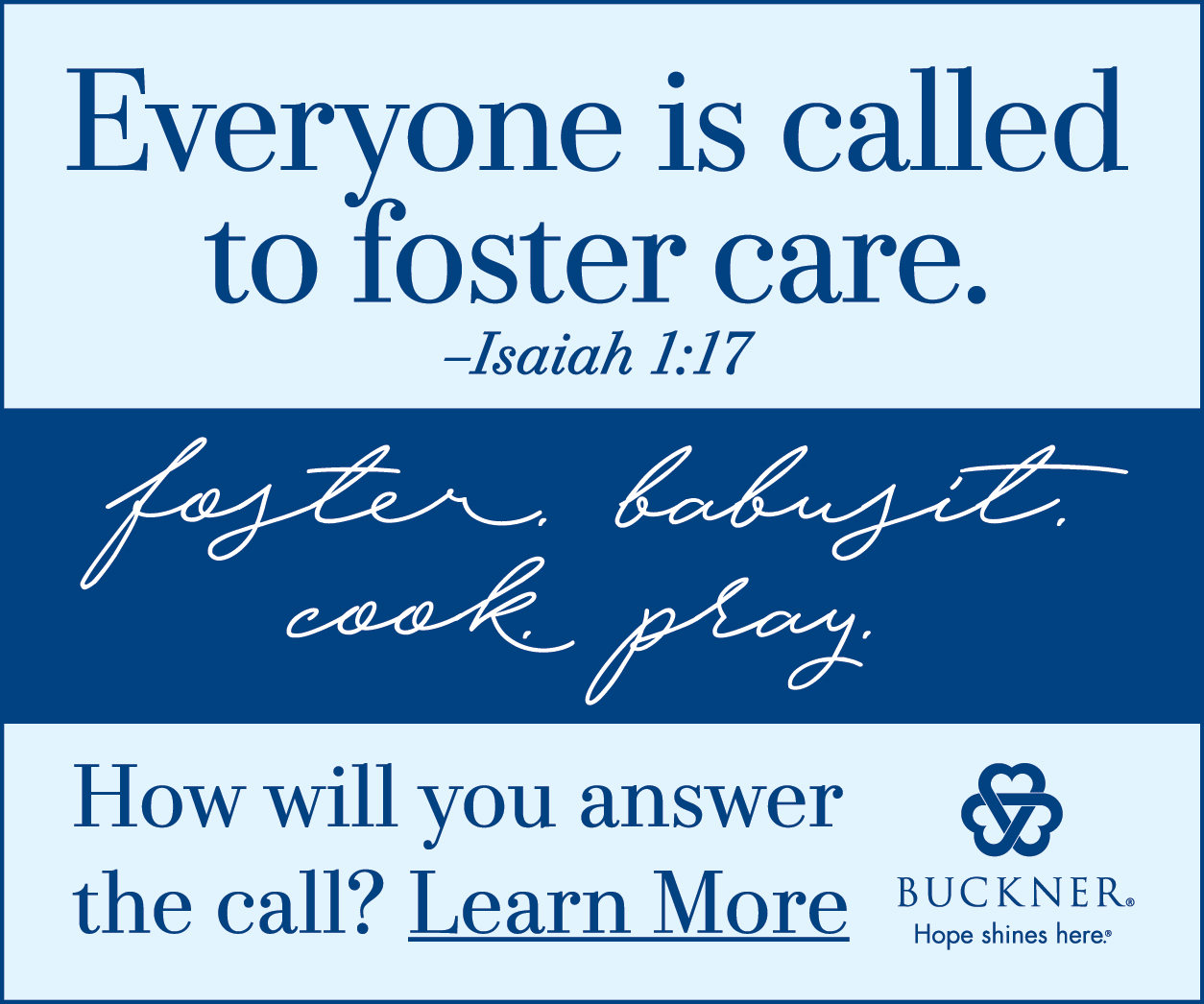Ferrell Foster is the director of ethics and justice for the Texas Baptist Christian Life Commission, having served in Texas Baptist life since 2000. From deep in the heart of one Texan, he shares his background and thoughts on associational ministry and the church. To suggest a Baptist General Convention of Texas-affiliated leader to be featured in this column, or to apply to be featured yourself, click here.
Background
Where else have you served in ministry, and what were your positions there?
• Co-Pastor, Grace Southern Baptist Church in Virden, Illinois
• Editor (previously associate editor), Illinois Baptist
• Managing Editor, Marshall (Texas) New Messenger
Where did you grow up?
Pleasant Grove in southeast Dallas
How did you come to faith in Christ?
I prayed to receive Christ in my living room with my pastor, Brother Wallace. This was more a formality. My parents essentially led me to Christ by how they lived.
Where were you educated, and what degrees did you receive?
• Bachelor of Science, East Texas State University (now Texas A&M, Commerce)
• Master of Divinity, New Orleans Baptist Theological Seminary
• Doctor of Ministry, Logsdon Seminary, Hardin-Simmons University
Ministry life
Why do you feel called into ministry?
I feel called into relationship with Christ, and that call has always felt like a call to ministry, even when I was working in the mainstream marketplace. Life is ministry for the Jesus follower.
What is your favorite aspect of ministry? Why?
Learning and teaching. I love learning about living in fruitful relationship with the Divine and sharing what I learn with others. This is how I’m hard-wired. I’m always seeking to learn, and once I discover something I am drawn to share it.
What one aspect of ministry gives you the greatest joy?
Walking alongside people. I need others in my life, and it is very rewarding and humbling when God seems to use me to help others. But I’m essentially an introvert who gets recharged in my alone times.
How has your ministry or your perspective on ministry changed?
It has remained amazingly consistent. When I was a layperson, I believed all Christ followers are called into ministry. Having been ordained a deacon and then a minister, I still feel we are all in this together. Ordination is sort of a shorthand to convey information quickly to others—this person has been recognized by others as a person willing to minister.
Sign up for our weekly edition and get all our headlines in your inbox on Thursdays
How do you expect ministry to change in the next 10 to 20 years?
I hope ministry will become more natural and less a profession, which is more biblical. And I think we are moving in that direction. Not that ministry as a profession is bad or wrong, but it is secondary. All of us should minister, and the “church” will decide to pay some to serve the church in specific ways. Whether or not we get paid, we should be seeking to serve God and God’s people.
If you could launch any new ministry—individually, through your congregation or through another organization—what would it be? Why?
Old folks for young folks. At age 63, I’m an old guy (relatively), and my primary personal ministry is to help those coming after me—not to tell them how to do things but to offer a sounding board for them. Some of us Boomers think Millennials and others have hung the moon.
What do you wish more laypeople knew about ministry or, specifically, your ministry?
I wish more laypeople saw themselves as much a minister as their “ministers,” and I wish more “ministers” saw that, as well. I also wish more non-vocational ministers would help undergird the vocational ministers in their lives with prayer and community. Vocational ministers are people, too.
About Baptists
What are the key issues facing Baptists—denominationally and/or congregationally?
As always, we face a real challenge in resisting the pull of culture. I cannot stop being a white man who grew up in a particular family in Texas and is a participant in the American evangelical culture of my time and place, but I can allow God to bend me away from the things in my culture(s) that are inconsistent with the example and teachings of Christ. It is a never-ending process, what I like to call continuing conversion.
What would you change about the Baptist denomination—state, nation or local?
That we would be more church-centered. I have worked for two state conventions and one Southern Baptist institution. Conventions and institutions serve the church, not the other way around. Denominations help the churches pursue kingdom purposes, or they are just in the way. We say we are church-centered, but we sometimes act as if conventions are the lead dog and as if denominational jobs are promotions.
About Ferrell
Who were/are your mentors, and how did/do they influence you?
John Hessel. Brother John taught me two things when I was a teenager—Christians can have fun, and they don’t have to check their brains at the door.
Keith Stanford. He taught me so much just by getting to hang with him on the Illinois Baptist convention staff. He was older and wiser than me, and like Brother John, he was fun-loving and affirming of the life of the mind. I still remember the day I came to the lunch table and asked Keith why Moby Dick was considered a great book; it bored me. He proceeded to help me see beyond my own mental vision.
What did you learn on the job you wish you learned in seminary?
More theology. Fisher Humphreys gave me a good dose in seminary, but I only took one course. There was so much more I needed to know in sorting out different theologies and especially in historical theology.
Other than the Bible, name some of your favorite books or authors, and explain why.
C.S. Lewis. He wrote with such beauty and insight. Reading his novel, Perelandra, while I was in college showed me there were Christians who saw life with more depth and understanding than I normally encountered. And his The Great Divorce is powerful, not to mention his non-fiction. So much, so good.
Jesus and the Disinherited, by Howard Thurman. Oh, my! This book helped me see better both Jesus and the vulnerable.
Straight Talk to Men and Their Wives, by James Dobson. I read this as a young father, and it helped me keep perspective on all aspects of life. It helped me keep God and family as priorities instead of career. It grieved me when Dobson got more and more into politics.
Anything by Diana Butler Bass. I like reading outside of my gender, race, and religious categories. Bass has helped me see things I might have otherwise missed.
Becoming Good, Becoming Holy, by Mark O’Keefe. When I read this a few years ago it was like finding the words I had always wanted to say. It’s about Christian ethics and spirituality; they go together.
What is your favorite Bible verse or passage? Why?
Luke 10:27. The Great Commandment sums up Jesus, the broader biblical revelation, and all that I have found to be important in living life.
Who is your favorite Bible character, other than Jesus? Why?
David. Slaying giants and being humbled by sin are good lessons to learn.
If you could get one “do over” in ministry, what would it be, and why?
An answer to that question would not come from a healthy place. Our lives are what they are. We learn from the mistakes—ours and others. If we did a “do over,” we would create new “do overs.” I wouldn’t do anything differently because a flawed life has taught me grace—from God, to others, to myself.















We seek to connect God’s story and God’s people around the world. To learn more about God’s story, click here.
Send comments and feedback to Eric Black, our editor. For comments to be published, please specify “letter to the editor.” Maximum length for publication is 300 words.